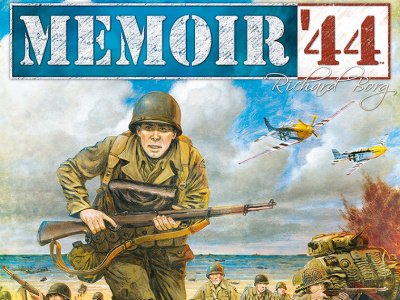 Rolling for Initiative is a weekly column by Scott Thorne, PhD, owner of Castle Perilous Games & Books in Carbondale, Illinois and instructor in marketing at Southeast Missouri State University. This week, Thorne looks at the Queen Games/ACD exclusive distribution deal (and others like it).
Rolling for Initiative is a weekly column by Scott Thorne, PhD, owner of Castle Perilous Games & Books in Carbondale, Illinois and instructor in marketing at Southeast Missouri State University. This week, Thorne looks at the Queen Games/ACD exclusive distribution deal (and others like it).Queen Games got more press this week then they have so far this year, with their announcement of agreement for exclusive distribution with ACD Distribution. In the last few months, that makes two for ACD (Queen Games and Playroom), one for Alliance (Z-Man Games) and a split between the two (Looney Labs). I find it interesting that all of these exclusives are happening in the board game industry. No exclusives signed with RPG
companies, none with miniatures companies, none with book publishers and certainly none with any TCG companies. To my way of thinking, there are a couple of reasons for this.
The share of the gaming market that RPGs claim has shrunk markedly over the past decade. Looking at sales figures, we have Wizards of the Coast and Paizo Publishing, or Paizo Publishing and Wizards of the Coast, depending on your reference, and a slew of companies battling out for third place. Especially with the advent of the PDF and online sales, the RPG has grown much less relevant to distributor and retail store sales. At the recent GAMA Trade Show (I figured I was done with GTS but can still pull a few valuable points from it), Jim Crocker's presentation was the only significant presentation on RPGs during the retailers seminar track.
Among publisher presentations, though WotC did talk about D&D 5th Edition (or Next, as they prefer calling it), most discussion focused on the upcoming launch of Kaijudo. AEG didn't spend ten seconds talking about their Legend of the Five Rings RPG. Catalyst Games spent a little time on Shadowrun but was much more interested in showing off their upcoming Leviathan miniatures game. Steve Jackson Games' DVD showing off their current catalog and upcoming releases was chock full of PDFs on Munchkin, Zombie Dice, even the company's line of plush toys but not one mention of GURPS. Only one RPG company (that I saw), Green Ronin, had a booth on the GTS exhibit hall floor. RPG publishers have embraced the direct channel, with publication in PDF format first, selling the PDF, with immediate download, to the customers, leaving hard copies accounting for sales of less than 10% in our store (YMMV, of course). It works for them, and they are doing what they feel they need to do to survive.
Though miniatures, TCGs and boardgames do get sold direct, their natures do not lend themselves to immediate distribution as do books, at least not until the 3D printer finds a place in many more homes. Miniatures use what we call a "selective" channel of distribution. The customer finds them in a limited number of outlets, typically specialty stores, stocking a variety of related products, with staff that has a better understanding of the product than does the retail staff at a typical mass market retailer. A mass customer base does not seek out miniature games, therefore there is no demand for them in the mass market.
The mass market does seek out and demand the top selling trading card games, ergo Magic: The Gatheirng, Yu-Gi-Oh! and Pokemon all seek out "intensive" channels of distribution as their objective, especially for the latter two, is to get as close to as many kids, and their parents, as possible. In general, TCGs do not require a skilled staff to sell them and are recognizable enough that they do not need the framing provided by similar products. The customer already knows what they are and how to use them. TCGs are packaged in bulk and sold in such a way as to encourage multiple purchases. It does not help either of these product categories to limit availability of their products.
Board games, at least the sort of boardgames most specialty game stores sell, need the same sort of treatment that miniatures need and will generally receive no benefit from self-limiting their access to wholesalers and distributors, unless they chose to go with distributors they perceive large enough to give them full access to the retail channel, in which case the savings they realize from reducing freight charges to multiple distributors might be enough to offset the loss of sales. In addition, if they wish to pursue an active demo program but don't want to deal with the logistics of it themselves (i.e. WizKids), putting the distribution into the hands of a channel member who exists for efficient distribution, makes sense. It will certainly be interesting to see if Queen Games, Playroom and Looney Labs see enough increased efficiencies to offset the loss of sales. It seems that Days of Wonder and WizKids have.
The opinions expressed in this column are solely those of the writer, and do not necessarily reflect the views of the editorial staff of ICv2.com.







